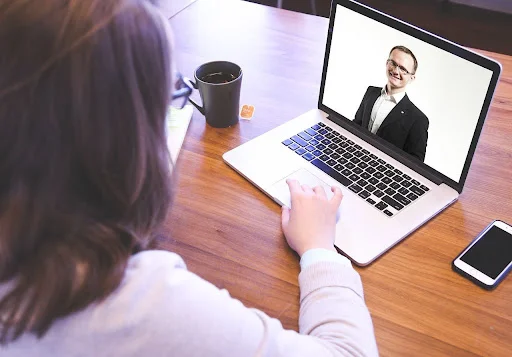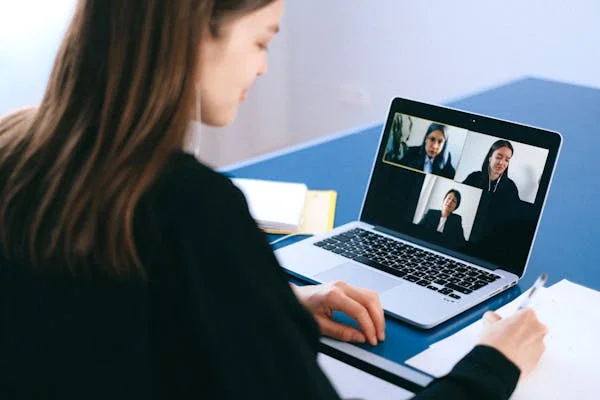Job interviews can be both exciting and nerve-wracking. They’re your golden opportunity to showcase your skills, experiences, and personality to potential employers, but the pressure to make a great impression can feel overwhelming. Whether you’re a seasoned professional or new to the job market, preparing effectively for an interview can significantly boost your confidence and performance.
This blog post will walk you through essential tips to ace your next job interview, from mastering the art of storytelling to fine-tuning your body language. By the end, you’ll feel equipped to tackle interviews with poise and leave a lasting impression. Remember, preparation and strategy can transform anxiety into assurance and turn the odds in your favor. Let’s dive in!

First Impressions Matter
The first impression you make in a job interview can set the tone for the rest of the conversation. From the moment you enter the building or log into the virtual meeting, your demeanor, attire, and punctuality are being evaluated. Dress appropriately for the role, aiming for a professional and polished look. Arrive early or ensure your tech setup is functional if it’s a virtual meeting. A confident smile, firm handshake, or friendly greeting will establish a positive initial rapport with your interviewer.
Research the Company Thoroughly
Understanding the company you are interviewing with demonstrates your genuine interest in the role. Take the time to explore their website, social media channels, and recent news articles. Learn about their mission, values, and culture, and find out how the role aligns with the organization’s goals. This knowledge allows you to tailor your responses to reflect the company’s priorities and positions you as a well-informed candidate.
Practice Common Interview Questions
One of the most effective ways to prepare for a job interview is to practice answering common interview questions. These questions often cover topics such as your strengths, weaknesses, and why you want the job. In addition to these, be ready for situational interview questions, which ask you to describe how you’ve handled specific scenarios in the past. For example, you may be asked to share a time when you overcame a challenge or worked with a difficult team member. By practicing your responses, you can ensure your answers are clear and concise, and highlight your relevant experience, ultimately making you more confident during the interview.
Highlight Your Achievements
Interviews are your opportunity to showcase what makes you the best candidate for the job. Rather than listing generic responsibilities from past roles, focus on specific accomplishments that had a measurable impact. For example, mention how you increased sales by 20% in a quarter or successfully led a team through a challenging project. Backing your claims with tangible results makes your application more compelling.
Ask Thoughtful Questions
An interview is a two-way street, and asking insightful questions about the role and company reflects your engagement. Avoid generic questions like “What does your company do?” Instead, inquire about team dynamics, growth opportunities, or how success is measured in the position. This not only gives you valuable insights into the role but also leaves a strong impression on the interviewer.
Prepare for Nonverbal Communication
Your body language speaks volumes in an interview. Sit upright, maintain eye contact, and avoid fidgeting to convey confidence. Nod slightly to show you are actively listening, and use natural hand gestures to emphasize points. These nonverbal cues reinforce your verbal responses and demonstrate professionalism.
Tailor Your Responses to the Role
Every role has specific requirements, and tailoring your responses to match these can give you an edge. Use the job description as a guide to identify key skills and attributes the employer is looking for. Frame your experiences and examples to highlight how you meet or exceed these expectations, ensuring your answers are relevant and impactful.
Master the Art of Storytelling
A memorable story can make your answers stand out in an interview. Share anecdotes that illustrate your problem-solving skills, leadership abilities, or adaptability. Ensure your stories are concise, engaging, and relevant to the job. For example, if asked about a time you handled conflict, narrate a situation where you successfully resolved a workplace issue, highlighting the positive outcomes.
Stay Positive and Professional
Interviews can sometimes veer into discussions about past challenges or difficult coworkers. It’s crucial to remain positive and professional, even when discussing less-than-ideal situations. Focus on what you learned from the experience and how it has prepared you for future challenges. This approach reflects your resilience and maturity.
Prepare for Virtual Interviews
With the rise of remote work, virtual interviews are becoming more common. Ensure you have a quiet, well-lit space with a neutral background for the interview. Test your internet connection, camera, and microphone in advance. Dress as you would for an in-person interview and maintain eye contact by looking at the camera, not the screen. Virtual interviews require the same level of professionalism and preparation as in-person meetings.
Follow Up After the Interview
A well-crafted thank-you note after the interview can set you apart from other candidates. Send a personalized email to your interviewer(s) within 24 hours, thanking them for their time and reiterating your interest in the role. Mention any specific topics discussed during the interview that resonated with you. This small gesture reflects your professionalism and enthusiasm.
Practice Makes Perfect
The more interviews you do, the more confident you’ll become. Consider doing mock interviews with a friend or career coach to refine your answers and receive constructive feedback. Practice helps you identify areas for improvement and allows you to fine-tune your delivery, ensuring you present yourself as a polished candidate.
Manage Pre-Interview Nerves
Feeling nervous before an interview is natural, but managing those nerves is essential for a successful performance. Practice relaxation techniques such as deep breathing or visualization to calm your mind. Remind yourself of your qualifications and achievements, and focus on the opportunity rather than the outcome. Confidence often grows from preparation, so the more prepared you are, the less anxious you’ll feel.
Be Authentic
While it’s important to present your best self in an interview, authenticity goes a long way. Be honest about your skills, experiences, and aspirations. Employers value candidates who are genuine and transparent, as these qualities build trust and set the foundation for a positive working relationship.
Reflect and Learn
After the interview, take time to reflect on what went well and areas for improvement. Note the questions that challenged you and think about how you could answer them better in the future. Continuous learning and self-assessment are key to becoming a stronger candidate for subsequent interviews.

By applying these essential tips, you can approach your next job interview with confidence and poise, maximizing your chances of landing the job. Remember, each interview is not just an evaluation but also an opportunity to grow and refine your skills. Good luck!





